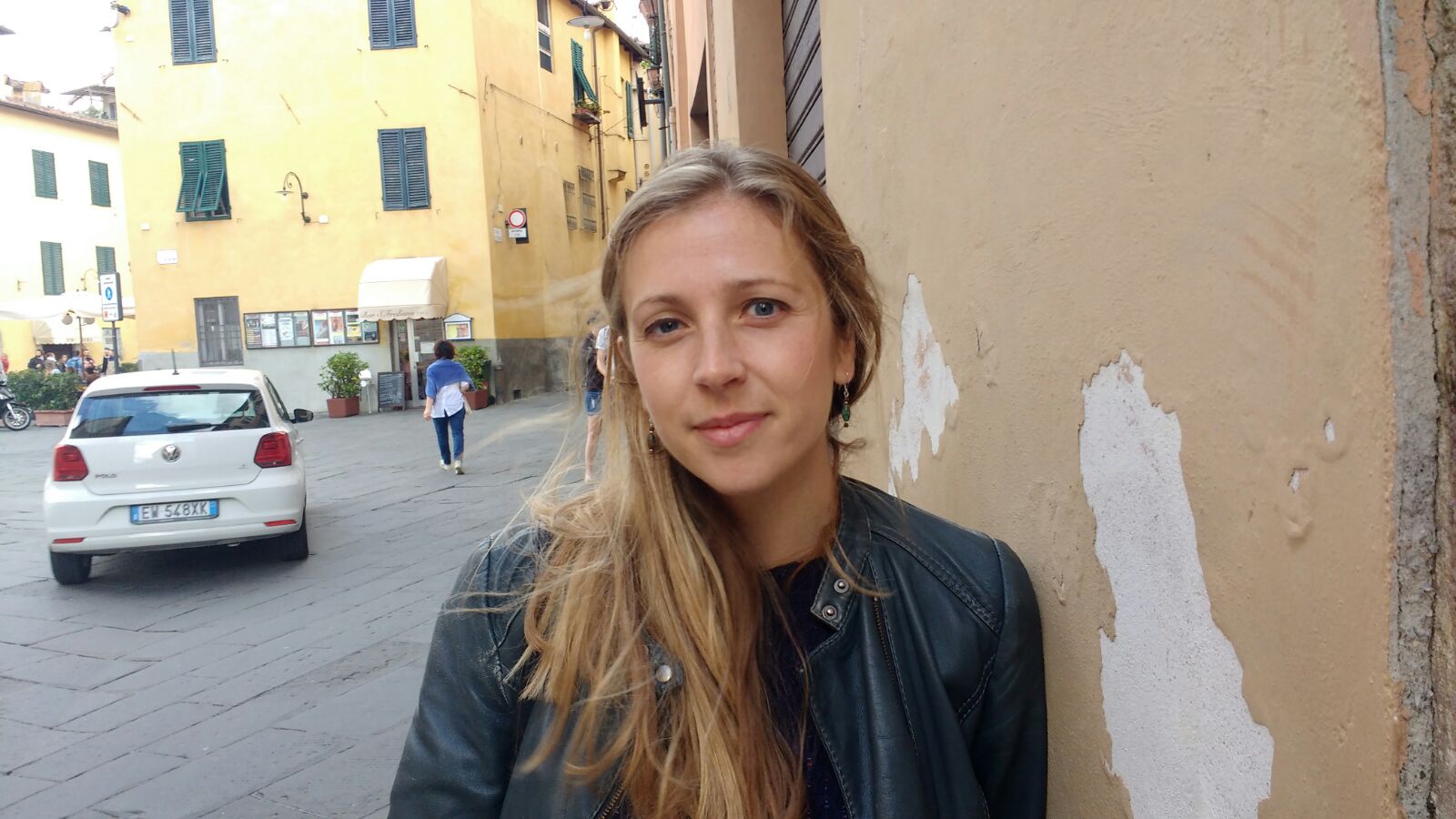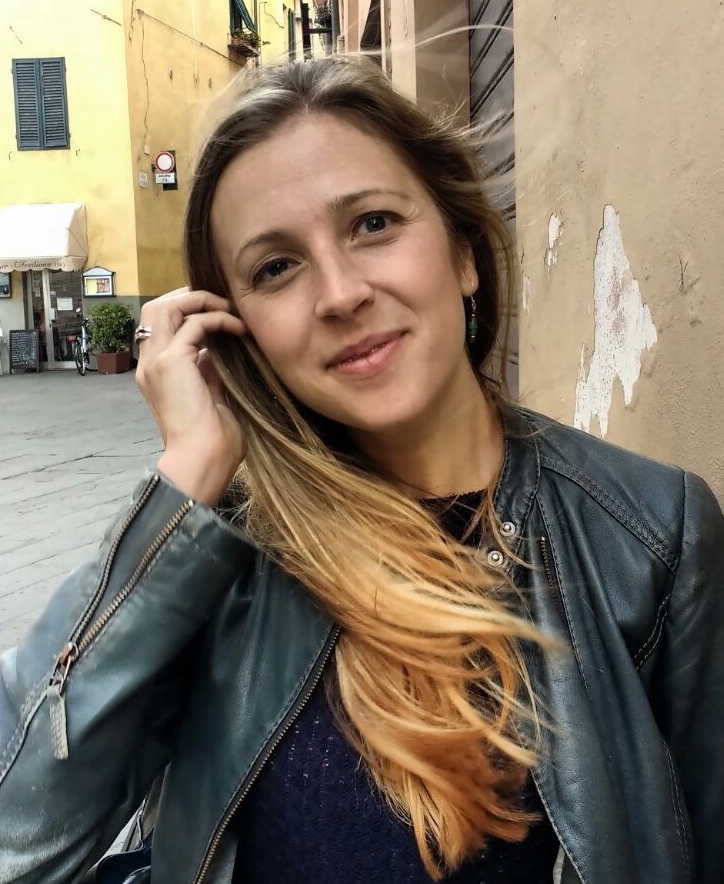
Amanda Dennis talks about her research on philosophy and literature and her first novels.
I am grateful for the opportunity to explore philosophical issues and to the Gates’ focus on engaging with the world. My novel is a bridge from my research to the world.
Amanda Dennis
Amanda Dennis has grown up immersed in literature. After years of studying the subject and teaching courses in comparative literature, she has now written her first novel and is working on a second.
Her first novel, The Trace, incorporates some of the research from her time at the University of Cambridge and her other studies and turns it into an accessible narrative.
Amanda describes it as “an existentialist detective story”. It is about a girl who goes missing in Thailand. The girl is adopted and her biological mother finds journals she wrote before she disappeared. She gives them to a student who writes them into a story to figure out why she disappeared. The focus is on the relationship between the mother and the student who gradually takes on the identity of the missing daughter.
A literary childhood
Amanda [2006] grew up in a literary family. Born in Philadelphia, both her parents are literary professors. Her father was a Renaissance literature and Shakespeare expert; her mother’s specialism was Irish literature. “I was surrounded by books and my bedtime stories at the age of six were by TS Eliot and Yeats,” she says. Inspired by her mother teaching an Oscar Wilde course Amanda wrote and put on a play about Dorian Gray when she was 11. Because she had used the critical edition of the book that her parents owned she had her friends walking around with placards showing the footnotes.
Amanda grew up reading avidly and trying out different styles of writing. She wrote for and edited her high school newspaper, which gave her the opportunity to explore different experiences. She also did a lot of playwrighting and says she loved the excitement of live theatre, the interaction with an audience and the fact that each performance is unique. “There is a sense of accountability for your words because you are writing them for others to speak,” she says. Amanda spent one summer at high school doing a Stanislavski programme in London and did several theatre camps in the summer holidays.
Literature and philosophy
She chose to study Comparative Literature at Princeton, attracted by the chance to be taught by the likes of Professor Robert Fagles who had translated the Iliad and Odyssey. The course was four years long and after spending the summer of her second year learning German in Munich, Amanda spent a semester in Berlin where she studied philosophy and did a course on Nietzsche which made a deep impression on her. She also took a course in art and emotion and discovered a love for painting.
When she returned to Princeton she completed a dissertation on the links between literature and philosophy, drawing extensively on Nietzsche, Samuel Beckett, Thomas Mann and Robert Musil. It was an ambitious broad-ranging project and it taught her that she needed to specialise more. She came upon the subject after her mentor Michael Jennings gave her a Beckett short story, First Love, which addressed philosophical questions about what it means to be human. “It was more than a story. It was a mix of poetry and philosophical prose which communicated more than a straightforward philosophical argument. By bringing the two disciplines together each was enhanced,” says Amanda.
When she left college she decided that, even though she was drawn to academia, she needed to get some variation in her life. “I had grown up in a literary family and studied literature. I wanted to experience a different way of living so when I went on to do further studies it would feel more like a choice,” she says.
She signed up for the Princeton in Asia programme and was posted to a village in the north of Thailand where, ironically, she taught English literature at a university. The experience was a sensory awakening. “I had been reading very abstract literature, but being in the market and seeing the colours and tastes of northern Thailand made me feel very alive,” she says. She spent a year teaching and then travelled widely afterwards, living in a monastery at one point.
It was an experience which had a profound impact on her and influenced her later choice of PhD subject and her first novel.
Back in the US, she worked as an intern for the literary magazine Atlantic Monthly by day and worked in a chocolate and coffee shop in the evening. Initially she felt long-form journalism might be for her, but says she “missed the footnotes”.
It was at this point that she applied to the University of Cambridge and to Gates Cambridge. She was excited by its commitment to engagement with the problems of the contemporary world. “Knowledge for me is not a purely academic exercise. It was that message of knowledge working for the world in the world that appealed to me,” says Amanda.
She was admitted to two PhD programmes – one at Berkeley in the US and Cambridge. She deferred Cambridge for a year and then tried for a while to juggle two PhDs. In the end she got an MPhil in French from Cambridge and opted to finish her PhD at Berkeley since she felt a US PhD would be more helpful for getting a job.
At Cambridge, where she was based at Trinity College, she deepened her interest in Beckett and read everything he wrote, although she wrote her thesis on Nietzsche and published an article based on that later. She also did an exchange in the Ecole Normale in France and became interested in French philosophy.
At Berkeley she taught alongside her studies, focusing on the influence of French theory – in particular phenomenology – on Beckett’s work. “Beckett’s work is very interested in the body, but it is rarely a good thing in his work. It’s a reminder of mortality, of weakness and impotence,” says Amanda.
Writing
She is currently exploring this theme of embodiment and agency, of human integration in the environment, through the work of the phenomenologist Maurice Merleau-Ponty in an academic book she is working on on Samuel Beckett. She argues that sensuality in Beckett suggests “passive” agency by orienting the human within its immediate, physical environment and compares this to voluntarism which promotes an embodied, more active relationship with nature.
Following on from her PhD, Amanda taught in various places, including the University of Nottingham, Sciences Po in Paris and in Madrid. She began writing her first novel and decided that doing a creative writing course would not only mean that she could learn more about the craft of writing and get the book finished faster, but that she could make it stronger.
She received a fellowship to attend the Iowa Writers’ Workshop where she taught an undergraduate fiction class, drawing on writers such as Beckett to illustrate how dialogue between characters, perplexing situations and surprising language can stimulate sensation in readers. She has been supplementing this with writing prompts which enable students to invent scenes, develop characters and experiment with voice and tone in a playful, informal environment. Amanda’s first novel is written in three first person voices which were in some ways part of the same identity and she says the creative writing course helped her to differentiate them. The first seeds of the idea for the novel came during the summer of 2006 which she spent in Paris learning French just before starting at Cambridge. But it was not until 2014 that she started dedicating considerable time to the book. Many of the germs for it came from her courses on French theory at Cambridge and Berkeley.
The novel is now with an agent and will be sent to editors in the autumn.
Amanda is now starting on her second novel, tentatively called Energy. It will be about a group of four people who leave city life behind and found a temporary community on an island where they attempt to build a sustainable lifestyle through alternative energy.
“It’s a disastrous utopian project that this is more difficult than they anticipated,” she says. The idea for the novel comes from research funding she received from a Whited Fellowship to spend a month on the island of Samsø off Denmark which is run wholly on alternative energy.
Amanda says her time at Gates Cambridge was important in her formation as a writer. “I am grateful for the opportunity to explore philosophical issues and to the Gates’ focus on engaging with the world. The novel is a bridge from my research to the world. It allows me to bring the ideas from my research to a broader readership.”

Amanda Dennis
- Alumni
- United States
- 2005 MPhil European Literature
2006 PhD French - Trinity College
Born in Philadelphia, Amanda Dennis studied modern languages at Princeton and Cambridge Universities before earning her PhD from the University of California, Berkeley and her MFA from the Iowa Writers’ Workshop, where she was awarded a Whited Fellowship in creative writing. An avid traveler, she has lived in six countries, including Thailand, where she spent a year as a Princeton in Asia fellow. She is the author of the novel, Her Here (2021), and of the book of literary criticism, Beckett and Embodiment (2021), and she has written about literature for the Los Angeles Review of Books, The Times Literary Supplement, and Guernica, as well as for a number of academic books and journals. She is assistant professor of English, Comparative Literature, and Creative Writing at the American University of Paris
Links
https://www.aup.edu/profile/adennis
https://www.amandadennis.net
https://www.facebook.com/amanda.dennis.9638
https://www.linkedin.com/in/amanda-dennis-6a560013












